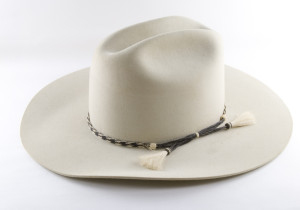 The Law Office of Robert B. Goss, P.C. hopes the following information assists you in complying with the law and staying safe.
The Law Office of Robert B. Goss, P.C. hopes the following information assists you in complying with the law and staying safe.
The tragic mass shooting at Oregon’s Umpqua Community College on October 1, 2015 inspires this update on changes to Concealed Handgun License (CHL) requirements in Texas. A Veteran, Chris Mintz, heroically stood between the Oregon mass killer and slaughter. Chris Mintz was reportedly shot at least five times and suffered two broken legs and multiple other injuries while barring a classroom door. Mr. Mintz’s unwavering concern for the lives of others reminds us of how much we owe America’s Veterans.
In Texas, the recently concluded 84th Regular Legislative Session made several significant updates and changes that impact both Concealed Handgun Licensing and Open Carry. The major changes are listed in order of their effective dates:
VARIOUS – SEPTEMBER 1, 2015
House Bills 554, 1376, 2604, 2739, 3710, and 3747 and Senate Bill 273 all make important updates to handgun carry requirements here in Texas. Three changes with broadest public application are:
- Amends the Texas Penal Code to add a defense to prosecution if the actor possessed a handgun that he or she is licensed to carry at the security checkpoint of an airport, and exited the screening checkpoint for the secured area immediately upon completion of the required screening process and notification of possession of the handgun.
- Adds the actor cannot be arrested for the sole offense of possessing a handgun that he or she is licensed to carry, unless a police officer gives the actor the opportunity to leave the area and he or she does not immediately comply.
- Amends the Business and Commerce Code to require businesses to accept a concealed handgun license (CHL) as a valid form of personal identification for access to goods, services, or facilities.
- Does not affect laws requiring a driver license to operate a motor vehicle.
- Does not affect the existing requirement to present a driver license when renting a car.
- Does not affect the type of identification required under federal law to access airport premises or to pass through airport security.
- Requires the Texas Department of Public Safety (DPS) to offer CHL applicants an opportunity to contribute money to the fund for Veterans’ assistance when applying for an original or renewal CHL license. Applicants determine the amount of contribution, if any. DPS will post information about making contributions online.
OPEN CARRY – JANUARY 1, 2016
With some exceptions, House Bill 910 authorizes individuals to obtain a license to openly carry a handgun in the same places that allow the licensed carry of a concealed handgun.
Exceptions:
- Open carry is not permitted by a license holder, regardless of whether the handgun is holstered:
- On the premises of an institution of higher education or private or independent institution of higher education;
- On any public or private driveway, street, sidewalk or walkway, parking lot, parking garage or other parking area of an institution of higher education or private or independent institution of higher education; or
- By an individual who is acting as a personal protection officer under Chapter 1702, Occupations Code and is not wearing a uniform.
- Unconcealed handguns – loaded or not – must be carried in a shoulder or belt holster.
- Individuals who hold a valid CHL may continue to carry with valid existing license. A separate license is NOT be required to open carry. No additional fee is required.
- Individuals currently licensed will not be required to attend additional training.
- Eligibility criteria to obtain a license to carry will not change.
- Training curriculum for new applicants will be updated to reflect new training requirements related to the use of restraint holsters and methods to ensure the secure carrying of openly carried handguns. The new curriculum will be required for all classes beginning January 1, 2016.
- There are also amendments to signage requirements for businesses. Essentially, if a business posts appropriate signs, license holders can be prohibited from carrying either concealed or openly on that business premise.
CAMPUS CARRY – AUGUST 1, 2016 & AUGUST 1, 2017
- Authorizes a license holder to carry a concealed handgun on or about the license holder’s person while the license holder is on the campus of an institution of higher education or private or independent institution of higher education in this state.
- Open carrying of handguns is still prohibited at these locations.
- Authorizes an institution of higher education or private or independent institution of higher education in this state to establish rules, regulation, or other provisions concerning the storage of handguns in dormitories or other residential facilities that are owned or leased and operated by the institution and located on the campus of the institution.
- Requires the president or other chief executive officer of an institution of higher education in this state to establish reasonable rules, regulations, or other provisions regarding the carrying of concealed handguns by license holders on the campus or on specific premises located on the campus.
- Authorizes posting of a sign under Penal Code Section 30.06 with respect to any portion of a premises on which license holders may not carry.
- The effective date of this law for a public junior college is August 1, 2017
Are you a Veteran? Are you a Veteran’s spouse or parent? If you believe you or your Veteran are eligible for disability or other Federal benefits, contact https://www.attorneyforveterans.com/contact-us.html today for your FREE consultation.
Public Law 109-461 allows Veterans to hire attorneys to appeal VA benefits rulings. The Law Office of Robert B. Goss, P.C. is one of the few VA-accredited Veteran attorney firms in the United States.
 Military Veterans' Lawyer Blog
Military Veterans' Lawyer Blog

